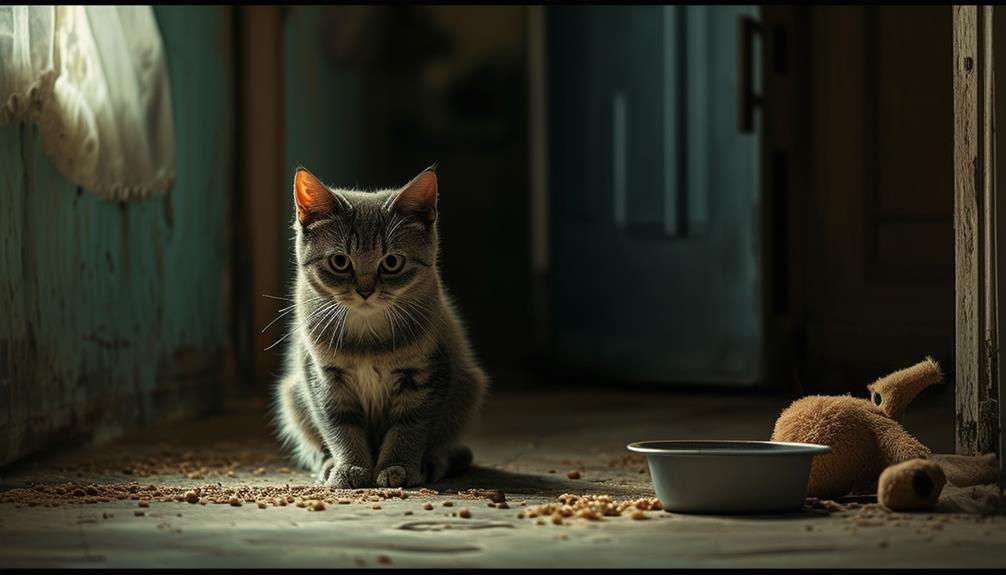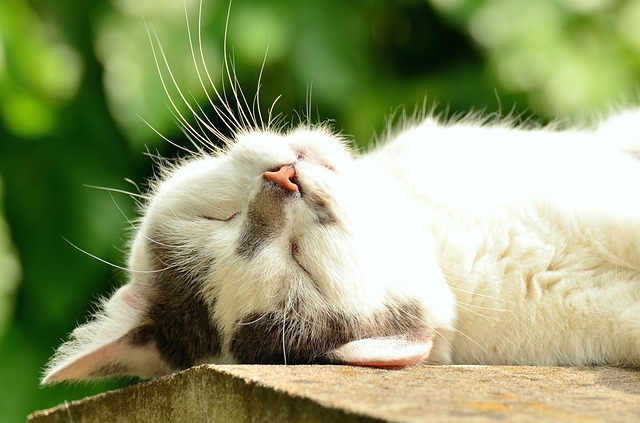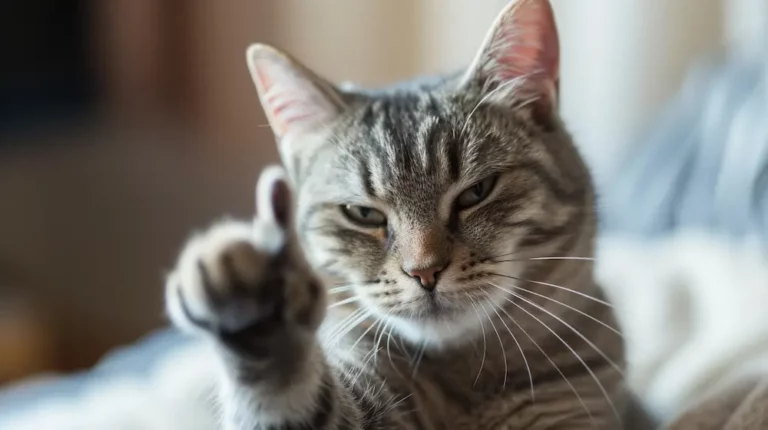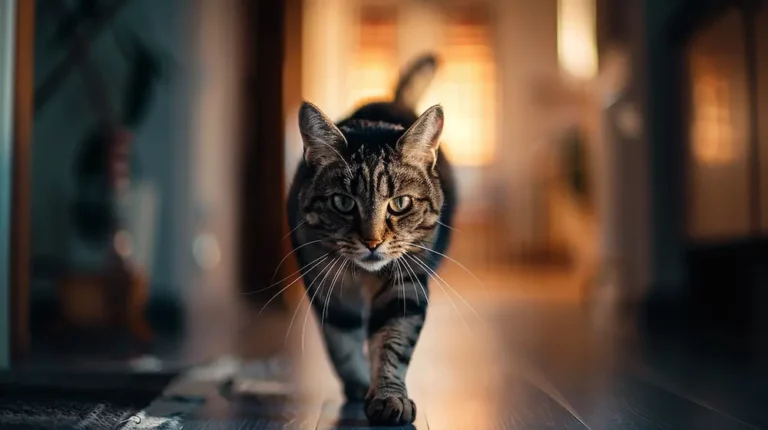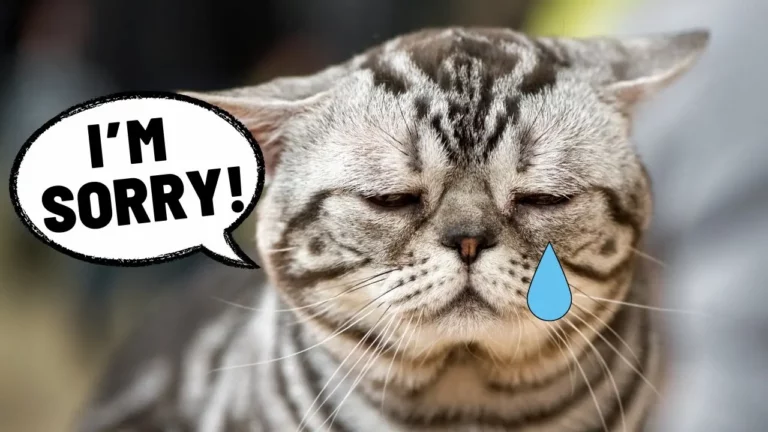These Everyday Things HURT Your Cat's Feelings!
Most
Ignoring your
Overlooking their natural hunting instincts may lead to boredom and frustration.
Disregarding their petting preferences, too, can make them uncomfortable and stressed.
But these are just the beginning. What other common behaviors might be affecting your
Understanding these nuances can make all the difference in your
Ignoring Your Cat

Ignoring your
Cats crave attention and affection from their owners, especially after being alone for hours.
When they’re met with indifference, it can lead to feelings of neglect and sadness.
Cats may show signs of distress through behaviors like hiding, excessive meowing, or even destructive actions.
A simple greeting, a few strokes, and a gentle word can make a significant difference in their emotional well-being.
Acknowledging their presence reassures them of their importance in the household.
Overlooking Hunting Instincts
Frequently, cats experience frustration and emotional distress when their natural hunting instincts are overlooked. These instincts are deeply ingrained, driving them to stalk, chase, and pounce.
When owners don’t provide opportunities for cats to engage in these behaviors, the cats can become bored and anxious.
Simple toys like feather wands or laser pointers can make a big difference.
Interactive play sessions not only satisfy their hunting urges but also strengthen the bond between
It’s essential to remember that mental stimulation is just as important as physical exercise.
Providing puzzle feeders or hiding treats around the home can mimic hunting scenarios, keeping cats engaged and happy.
Acknowledging these instincts helps maintain their emotional well-being.
Disregarding Petting Preferences
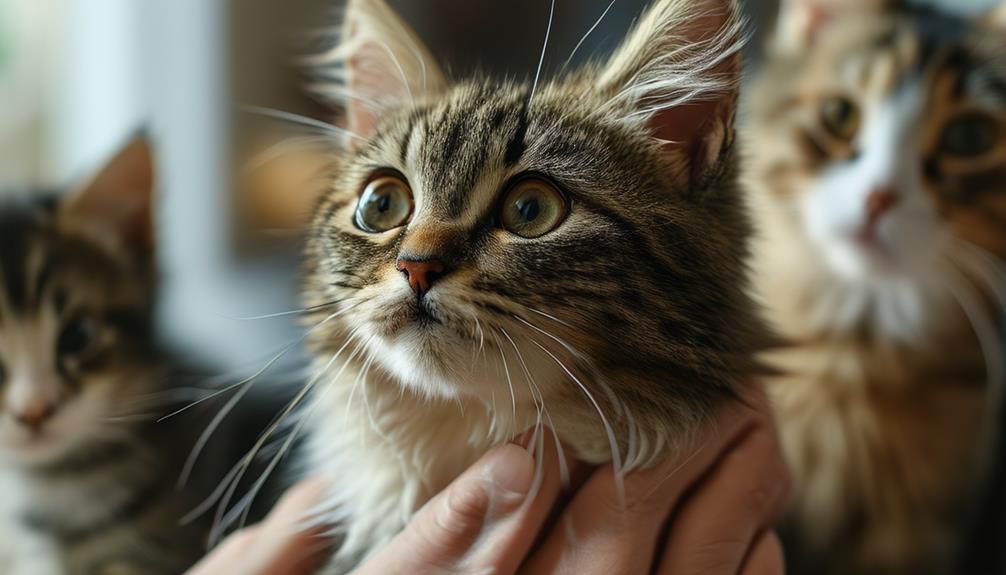
Just as recognizing hunting instincts is essential for a
Cats have specific areas they enjoy being petted, like their head or under the chin, and areas they prefer to avoid, such as their belly or tail. Ignoring these preferences can cause stress and discomfort.
Many cats will show signs of displeasure, such as twitching their tail or moving away, when petted in unwanted areas.
Observing and understanding these cues guarantees a positive interaction.
Pet owners should always approach their cats gently and respect their boundaries.
By doing so, they strengthen their bond and make sure their cats feel safe and loved.
Loud Noises and Yelling
Important noises and yelling can startle cats, leading to immediate fear and long-term anxiety.
Sudden, loud sounds such as fireworks, thunderstorms, or even a raised voice can make cats feel unsafe.
This stress manifests in behaviors like hiding, overgrooming, or becoming aggressive.
Yelling, in particular, can damage the bond between a
Consistent exposure to loud environments can lead to chronic anxiety, affecting their overall well-being.
To help alleviate this, it’s vital to maintain a calm, quiet home environment.
Speaking softly and offering reassurance during stressful times can make a significant difference in keeping cats content and secure.
Forced Socialization
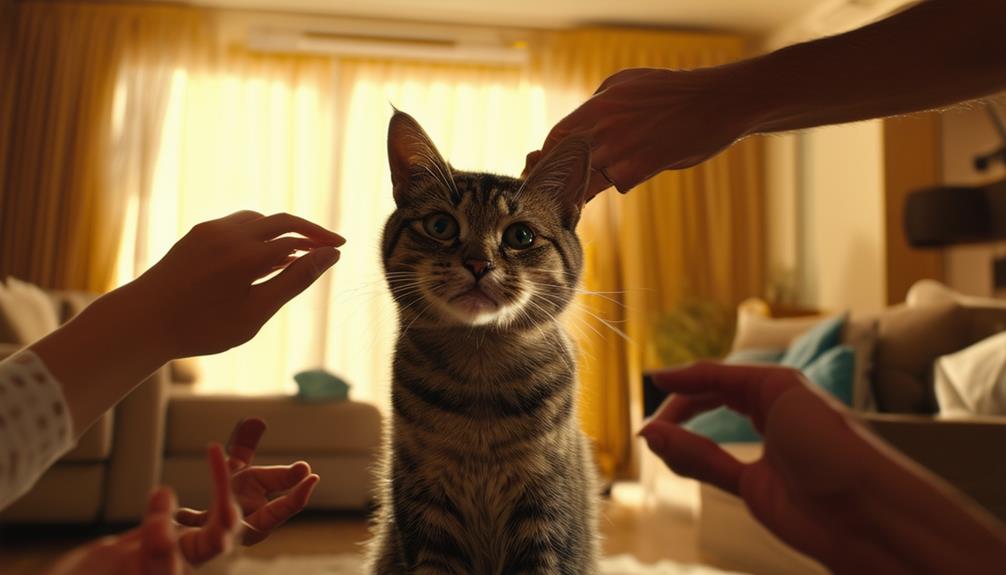
After addressing the impact of loud noises, it’s important to understand how forced socialization can also cause significant stress for cats.
Cats prefer to control their social interactions, often choosing when and how to engage.
When they’re pushed into unfamiliar social situations, it can lead to anxiety and fear.
Cats rely heavily on scent and non-verbal cues to feel safe, and forced interactions can disrupt these.
For cats with limited socialization experiences, such stress can be even more pronounced.
They form secure attachments to their owners, much like dogs and children, but need their boundaries respected.
Ensuring cats have the freedom to approach social situations at their own pace is essential for their emotional well-being.
Overwhelming Smells
Strong scents can be particularly distressing to cats, often causing them to avoid areas like litter boxes entirely.
Cats have a highly sensitive sense of smell, and overpowering aromas from scented litters, cleaning products, or air fresheners can make them anxious and uncomfortable.
This discomfort can lead to increased stress and anxiety, disrupting their natural behavior and sense of control.
Additionally, cats rely on natural pheromones for communication.
When artificial scents mask these pheromones, it can create confusion and unease.
To keep cats comfortable, it’s important to use unscented or minimally scented products in their environment.
Conclusion
By paying attention to your
Remember, each small effort you make contributes to their overall well-being.
Your mindful approach to their care can make a significant difference, fostering a happier, healthier relationship with your
Prioritize their feelings, and you’ll both thrive.
